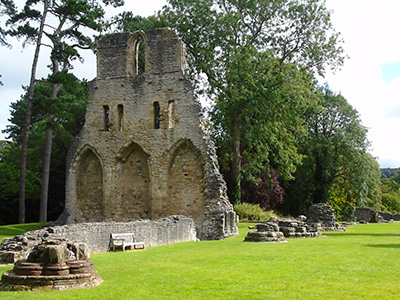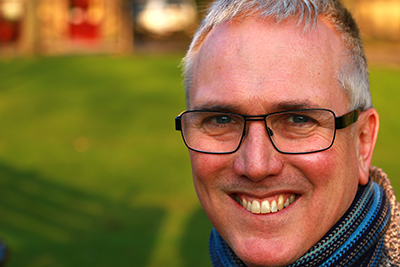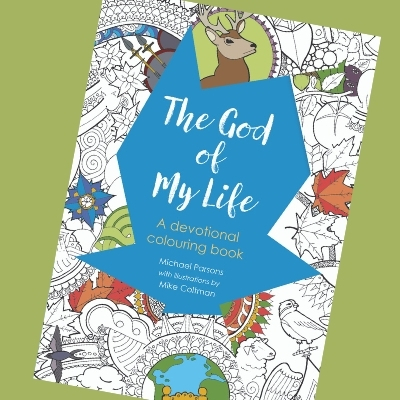In the latest of our series of articles on prayer, Holy Habits pioneer Andrew Roberts shares some of the aids to prayer which he finds most helpful.
18 October 2020
Prayer-soaked stones
The other day I went on a prayer pilgrimage to Wenlock Priory in Shropshire. An Anglo-Saxon monastery was founded there in about 680 by King Merewalh of Mercia, whose abbess daughter Milburge was hailed as a saint. Her relics were rediscovered there in 1101, attracting both pilgrims and prosperity to the priory. By then Wenlock had been refounded by the Normans as a priory of Cluniac monks. It is the remains of this beautiful medieval priory which survive today.
I sat down to pray in that ancient place of prayer. You can sense the prayers of the pilgrims and saints of the ages in the soil and the stone. And my prayers flowed readily and easily, like water cascading over rocks. Praise, thanks, confession, supplication and intercession poured out in a non-liturgically ordered way. If only prayer was always that easy.

A gift to be treasured
Prayer is one of the major themes of both Luke’s gospel and Acts. In the immediate aftermath of the Pentecost events, the focus is on spontaneous, unstructured prayer in either native or unlearned languages (or tongues). The disciples are on fire. The praying is spontaneous, passionate, energetic and noisy. Prayer is celebratory, visionary, confident and expectant. Such times of prayer are a gift to be treasured.
Sometimes, often, usually, it is much more routine. By the time we get to Acts 2:42, Luke slips in the little phrase the prayers. The use of the plural with the definite article implies the use of certain specific, regularly used prayers.
The church of Jesus began as a movement within what scholars call second temple Judaism, so the shared prayers of the communities described in Acts would have been mainly Jewish prayers with added Christian flavouring.
So very early on in the Christian tradition we have variety in prayer with spontaneous and set prayers both playing a valuable part in devotional and missional lives of the early followers of Jesus.
Variety and creativity in prayer
God has woven variety and creativity into all of creation, including humanity. These are gifts of God that help keep our prayer life fresh. Over the years I have prayed in all sorts of ways and have friends whose preferred forms of prayer vary widely.
I have charismatic friends who pray exuberantly in their native language and other tongues, and contemplative friends who like to breathe their prayers in and out in silence. I have friends who pray with their bodies as well as their words, and friends who use symbols, candles and icons as part of their praying.
Different personalities need different spiritualities.
I have friends with special needs who pray in a language all of their own, whose joy in praying is clear on their faces. Other friends like to write, read, paint, sculpt or dance their prayers. My friend Jemima leads prayer and pilates classes. My mum used to enjoy using a colouring book based on biblical verses to help her pray.
In his intriguing book Who We Are Is How We Pray: Matching personality and spirituality, Charles J. Keating explores how our personality types affect the ways in which we prefer to pray. He writes:
Sometimes we still assume that the human part of us needs to be subjugated if we are to become holy [but] to suppress our created humanity is to set God against himself. He who created the human said it was good. The God of creation is the God of grace. It is interesting that within the theory of Myers-Briggs there are no bad personalities; there are only different personalities. And different personalities need different spiritualities.
Dryness and struggle in prayer
Whatever our personality and preferred style of praying all of us, I suggest, can and do experience times of dryness and struggle in prayer. This can have many causes.
Sometimes we may just be physically exhausted and need a good rest or change of scene. I remember a mum with a newborn once saying to me, ‘Please will you say my prayers for me, as I’m just too tired to pray.’
At other times our selfishness (sin) may be marring our relationships with God and others and withering our prayer life. In which case we need to seek forgiveness through confession, contrition and repentance.
Dryness can also be the result of tiredness with the way we have been praying. In which case trying something new and being creative can be really helpful. If you normally sit to pray, why not go for a prayer walk or practise some body prayers? If words are becoming stale why not draw or paint or sculpt? If you are normally very quiet when you pray why not find a suitable space and shout out your praise, your angst or your intercessions. Conversely if you are becoming a bit tired of shouting out your prayers why not sit still with a candle or icon and see where the Spirit takes you in prayer?
Dryness can be the result of tiredness with the way we have been praying.
If our normal style of prayer is extempore using written prayers for a time or season can make a refreshing change. Recently as part of my morning prayers I have been reading as a prayer a hymn a day from the hymnbook most often used in the churches I preach in. It has brought variety to my prayers and also spared my congregations getting the same hymns every time I lead worship.
There is an absolute wealth of resources available to help us with creative and different ways of praying. Books, websites, DVDs, conferences and retreats. Why not have a little browse around and see what might renew your prayer life. And if you have somewhere like Wenlock Priory nearby treat yourself to a little prayer pilgrimage and see how God meets with you there.

Andrew Roberts is a husband, father, minister, writer and speaker based in the West Midlands. He is the author of the book Holy Habits (published by Malcolm Down) and editor of the Holy Habits resource booklets and daily Bible reflections (published by BRF). Previously he was director of training for Fresh Expressions.

Holy Habits is an adventure in Christian discipleship based upon Luke’s picture of the early church in Acts 2:42–47.

Pray differently
If you’ve not tried prayerful colouring, here’s the perfect place to start. The God of My Life is a devotional colouring book based on the Psalms, written by Michael Parsons with illustrations by Mike Coltman.
